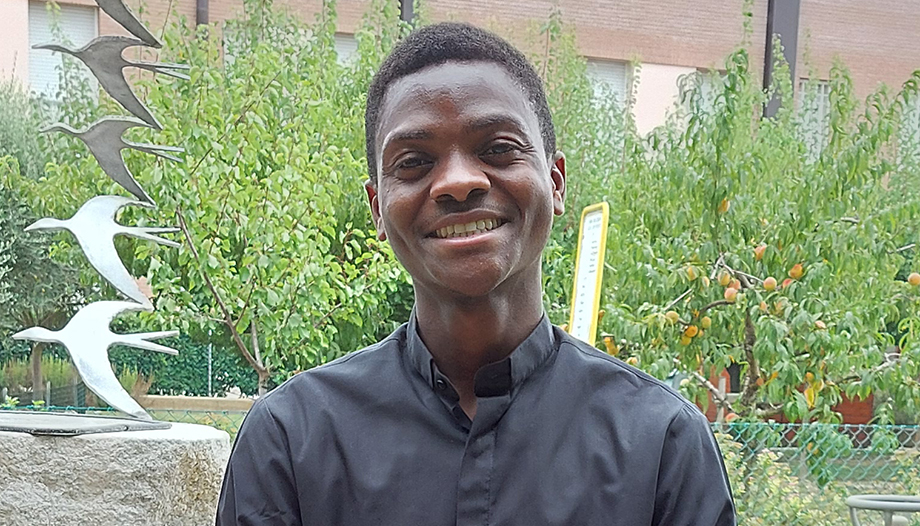Eduardo Ngalelo Kalei is a seminarian of the Diocese of Benguela, Angola, where he was born. From a Christian family, he was baptized a few months after his birth, but it was in his late childhood that he began to attend parish catechism classes. He is now preparing for the priesthood by furthering his theological studies in Rome thanks to a scholarship from the CARF Foundation.
How did you discover your vocation?
-Although I come from a Christian family, I didn't want to go to church as a child. But everything changed one day when my friends invited me to play soccer and then to a luncheon to commemorate the 10 years of existence of the Missionary Group for Children and Adolescents in the parish.
That event marked a turning point in my life, because from that day on I began to understand my vocation as a Christian, attending mass, catechesis and receiving the sacraments. It was in this context that my priestly vocation was born in me. I met several seminarians during their vacations, and they helped me to understand what I had to do, how to do it and why if I wanted to become a priest. I decided to embark on the path of a priestly vocation and entered the Good Shepherd Seminary. At the beginning, everything was strange to me, but at the same time very beautiful. Later, I studied philosophy, and then my bishop sent me to Rome to continue my theological studies, thanks to the opportunity granted by the CARF Foundation.
What is the peacemaking role of the Church in Angolan communities?
-The Church in Angolan communities is constantly striving to follow the method of the Social Doctrine of the Church, which involves seeing, judging and acting. To this end, the Episcopal Conference of Angola and St. Thomas and Prince (CEAST) plays an essential role, drafting documents and organizing meetings to promote the sharing of evangelization, support peace and denounce injustices. There is a significant effort on the part of the Episcopal Conference and of each bishop in their respective dioceses to face the difficulties and spread the knowledge of Christ, presenting him as Life and Salvation for all.
What challenges does the Church face in your country?
-The Church in my country faces several challenges. First, it faces the proliferation of religious denominations, such as neo-Pentecostal movements and sects, which are constantly emerging and often promote a superstitious culture that cages the faithful.
Moreover, on the political and cultural level, we continue to face a culture of intimidation and control of the media, which restricts the exercise of freedom of expression. Institutional barriers prevent the full participation of lay people, often compounded by an inferiority complex due to social, ethnic and professional factors.
How can your training help the future of the Angolan Church?
-The formation in Rome plays a fundamental role for the future of the Church in Angola. Here we not only have the opportunity to study with professors from all over the world, but also to share experiences with peers and colleagues from different nations and cultures, each with their own unique approach to tackling problems and understanding the teachings.
This environment allows us to deepen our understanding of the history of Rome and to understand the meaning of martyrdom, historicity and ecclesiastical realism, sustaining our faith in Jesus and in the Church He founded. This formation prepares us to face more effectively the challenges that the Church faces in our country.
What have you discovered about the universal Church?
-It is incredible how in Rome we are in contact with the whole world. Here I had the opportunity to discover how Mass is celebrated in the different rites, a unique experience compared to what I experienced in my own country.
I was able to attend audiences with the Pope and meet the bishops who come to meet the Pope and then return to their dioceses, thus expressing the true communion of the Church. Moreover, also thanks to the visits to the museums of Rome and, above all, to the Vatican, I had a complete vision of the Church as a universal Church.








